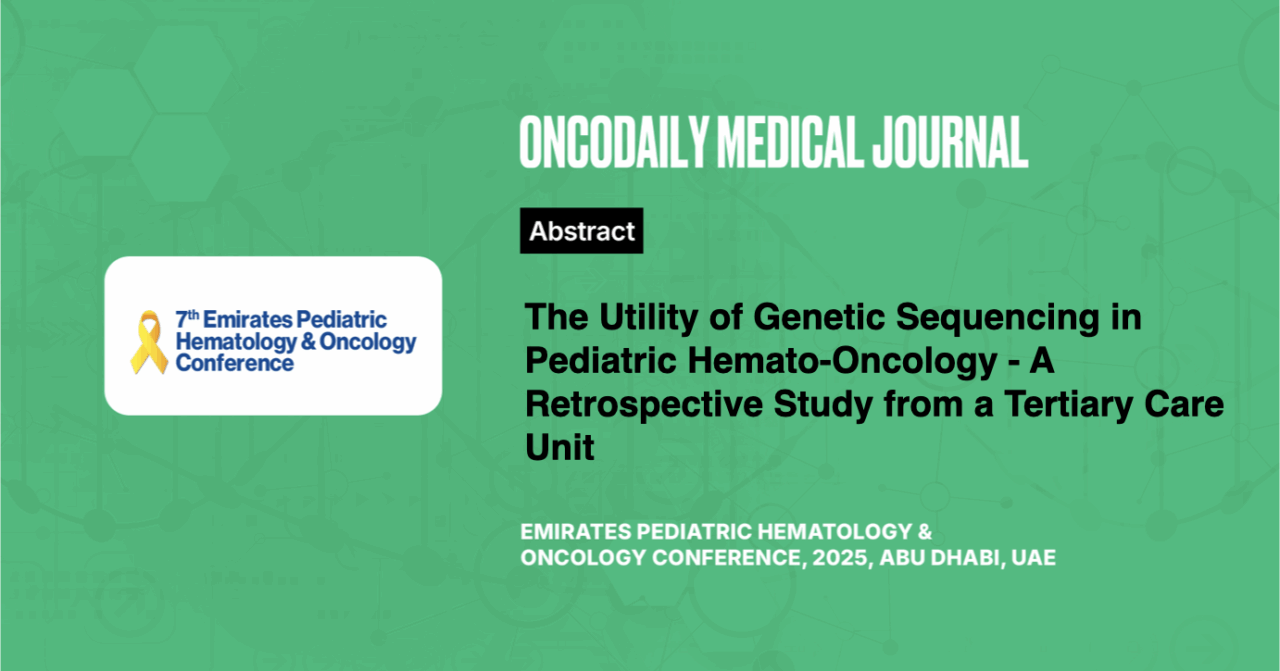The Utility of Genetic Sequencing in Pediatric Hemato-Oncology – A Retrospective Study from a Tertiary Care Unit
Abstract
Introduction: Genetic sequencing and molecular studies have gained importance in decoding the diagnosis in many complex cases. We did a study to find the utility of genetic sequencing in understanding the genotype-phenotype correlation, family screening, treatment planning and prognostication.
Methodology: We did a retrospective analysis from January 2019 to December 2023 about the clinical details and the genetic reports of those children who underwent genetic sequencing for evaluation of an underlying blood disorder or malignancy. Samples for the genetic studies were taken prior to an intended blood transfusion or the sampling was postponed by 2-4 weeks after transfusion to avoid contamination with donor leucocyte. The correlation between clinical phenotype, genetic report and the usefulness of the test in the management of given patient were analyzed.
Results: Out of the 73 children who underwent genetic sequencing, 20 had anemia, 14 had inborn errors of immunity, 15 had malignancies, 8 had aplastic anemia, 7 had bleeding disorder and 1 for hypereosinophilia. Genetic sequencing was done in 8 for family screening of potential donors prior to stem cell transplant. Genetic sequencing confirmed diagnosis with phenotypic correlation in 53% cases; ruled out genetic diagnosis in 17.8% helping therapeutic management; useful to establish complex diagnosis with clinical correlation in 6.9% (5cases) and was inconclusive/not correlating with phenotype in 11.1% (8cases). Family screening and prenatal diagnosis benefited 12% in either asymptomatic carrier identification/prenatal diagnosis.
The initial focus of genetic sequencing studies was on identifying actionable alterations based on established diagnosis. However, the value of these technologies extends far beyond this scope and should be evaluated more comprehensively, considering their broader clinical implications. As demonstrated in our study, genetic sequencing not only facilitated diagnosis and therapeutic management but also enabled the identification of challenging diseases that were undetectable using conventional diagnostic methods. Furthermore, genetic sequencing plays a crucial role in genetic counseling for affected families and in prenatal diagnosis.
Conclusion: Next generation sequencing is one of the most important recent advances in the field of precision medicine and navigates the clinical care more precisely.





